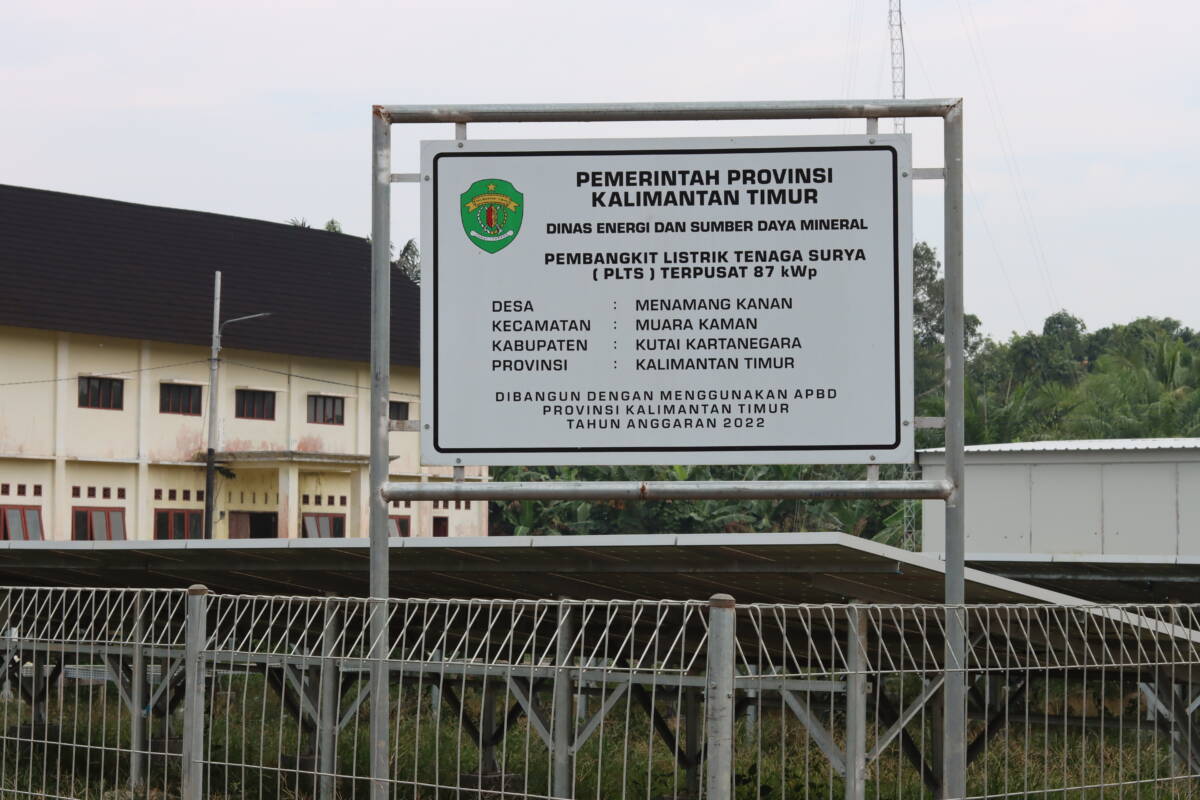Samarinda, 7 September 2023 – Menamang Kanan Village is located in Muara Kaman District, Kutai Kartanegara Regency. It takes around 4 hours to travel from the city of Samarinda via road to reach this village. Until 2022, the people of Menamang Kanan rely on diesel generators from a company’s CSR (Corporate Social Responsibilities) program to fulfill their access to electricity. Diesel will light up and be a source of lighting for residents for 4 hours every day.
The hope of having longer and better quality access to electricity is slowly starting to come to light in 2022. Through the East Kalimantan Regional Revenue and Expenditure Budget (APBD), Menamang Kanan village received centralized solar PV installation of 87 kWp. Electricity from this PV is distributed to 600 families.
Even though we already have other energy sources, unfortunately the quality of electricity produced is only sufficient for lighting and basic electronics.
“Because we only produce 700 watts/day and it has to be used communally, so it can only be used for lights and fans at most, It can’t be used for TV or cooking rice, let alone the refrigerator,” explained Zapir, Menamang Kanan Village Secretary.
Zapir added that the people of Menamang Kanan hope to increase the electricity capacity they receive so that people can use electricity for other, more productive activities. Not limited to lighting.
The Institute for Essential Services Reform (IESR) believes that the quality of electricity received by society needs to improve because if the electricity they receive is of low quality, society will not be able to carry out productive activities that can improve the economy. Decentralized power plants such as solar PV need to increase massively to supply electricity in rural areas.
Regional governments can utilize their authority in developing renewable energy as regulated in Presidential Decree Number 11 of 2023, in order to improve the quality of people’s access to electricity.
“This additional authority certainly needs to be followed by local government initiatives to design programs that also address the need to provide energy access, especially with local renewable energy. This principle of energy decentralization enables independent energy efforts with the involvement of many parties and is expected to improve community welfare with sustainable energy access,” explained Marlistya Citraningrum, Sustainable Energy Access Program Manager, Institute for Essential Services Reform (IESR) in the webinar “Energy Transition in Equity National Electrification”.
Decentralization of energy by utilizing renewable energy sources will open up opportunities for wider and participatory exploration of utilization so as to facilitate access to electricity and increase the reliability of its quality.

